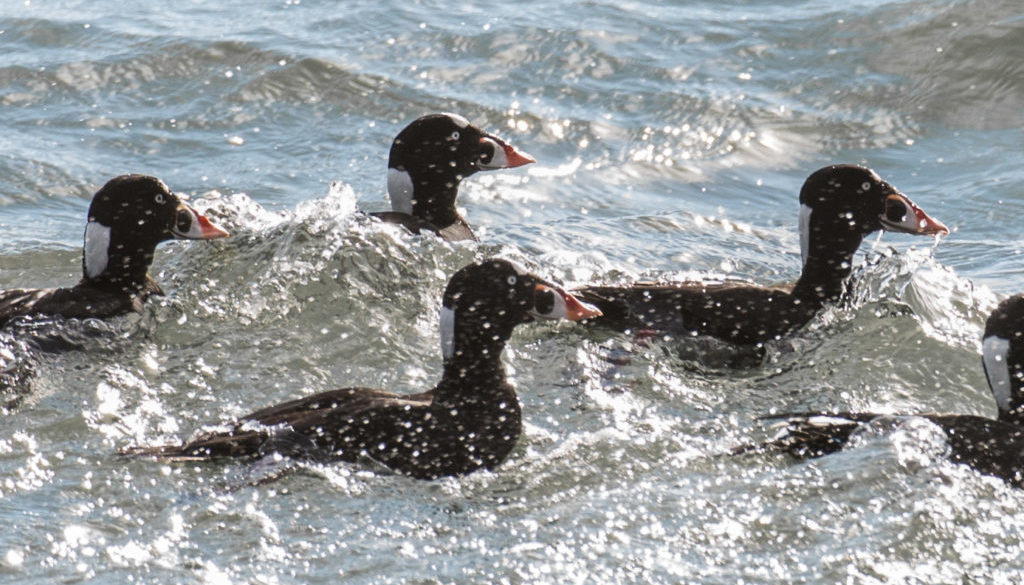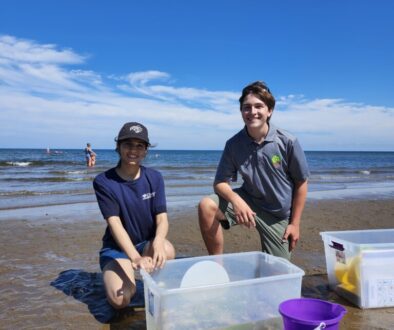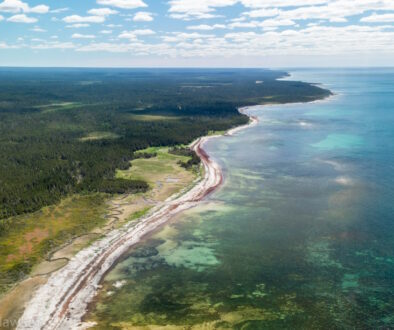Canada: A Conservation Super-nation!

Canada is the second largest country in the world, but only the 38th most populated. Most Canadians live within 200km of the United States border, leaving the majority of the country as sparsely populated, or home lands for Indigenous peoples. The eight largest countries in the world, including Canada, together make up half of all land on Earth, but only 3% of all countries! The world’s largest nations have an important role in conservation, simply because of their size. As countries all around the world start to value and protect nature, what will Canada’s role be?
A new study describes the impact of the eight largest countries in conservation, based on having some of the world’s most important ecosystem characteristics, including wilderness area, accessible freshwater, productive oceans, habitat for migratory birds, storing carbon in soils, and support for species shifts in response to climate breakdown [1]. The researchers argue that these countries have the biggest opportunity and responsibility to act as leaders in conservation – because what they do matters most to conserving these ecosystem characteristics! Throughout their analysis, Canada is consistently among the most important countries when it comes to conservation.
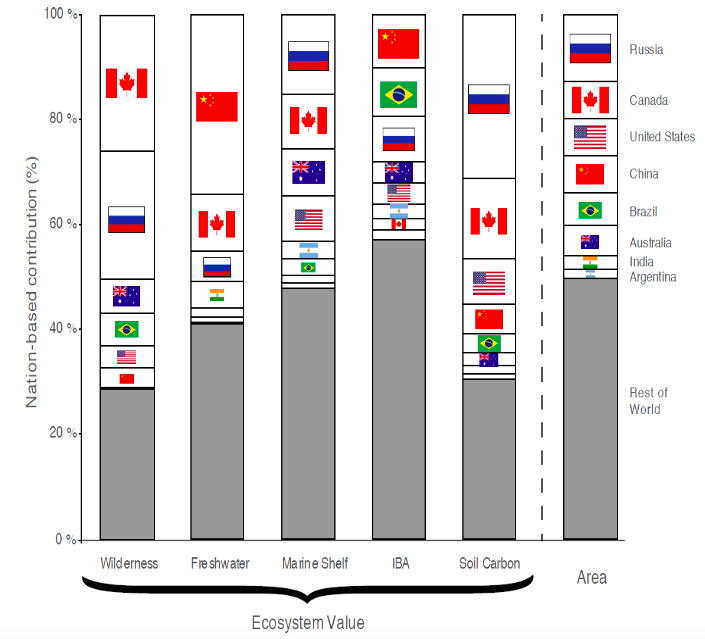
In this study, Canada is reported to have the most wilderness area of any country! It’s important to know that much of this land is the homeland and territory for Indigenous peoples, and they have aboriginal and treaty rights that need to be honoured and respected. We also have an enormous responsibility to protect this wilderness, which will support wildlife and the delivery of globally important ecosystem services. Canada also houses a significant portion of the world’s freshwater supply and has a responsibility to carefully manage our water resources. This includes ocean resources, since Canada has the second largest continental shelf where ocean animals and human activities are abundant. In Canada’s north, soils of the boreal forest and tundra store mass amounts of global carbon. Protecting these soils will be critical in the fight against climate change. Finally, the size of Canada from north to south means that the country has the ability to support and protect species as they shift in response to changing environments. It is clear from this research that Canada should be living up to our potential position as a Conservation Super-Nation!
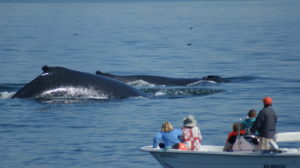
The policies we support and the actions we take in Canada to protect these ecosystem characteristics will be critically important to Canada and beyond. We have an opportunity as Canadians, in the spirit and intent of reconciliation with Indigenous peoples, to demonstrate leadership in conservation. This will help us act on our important role in protecting the world’s wildlife and creating sustainable lifestyles. As New Brunswickers, we must do our part to protect wilderness and water.
New Brunswick ranks 11th in its total area as the third smallest province in Canada. Small but mighty, our province is home to diverse ecosystems from land to sea: hilly landscapes, dense mixed forests, extensive rivers, numerous lakes, wetlands, and, of course, our coasts and oceans. It is no surprise with these rich habitats that New Brunswick is also rich in plants and animals, being home to more than 6000 species. By protecting our remaining wilderness and working to restore ecosystems from land to sea, New Brunswick can help wildlife at the local scale to support national and global conservation efforts.
While Canada may be a Conservation Super-Nation, it is up to all of us to ensure that we take that responsibility seriously. CPAWS-NB is dedicated to working with provincial, federal, territorial, and Indigenous governments to ensure that protected areas are a priority in New Brunswick and Canada. We are working hard to conserve our wilderness for today and tomorrow.
You can support CPAWS-NB in our conservation mission with a donation!
Add your voice to a CPAWS conservation campaign today!
Read the research paper here (access may be restricted).
References:
[1] Coristine, L.E., Colla, S., Bennett, N., Carrlsson, A., Davy, C., Davies, K.T.A., Favaro, B.,
Flockhart, D.T. T., Fraser, K., Orihel, D., Otto, S., Palen, W., Polfus, J.L., Venter, O., & Ford, A.T. (2019). National contributions to global ecosystem values. Conservation Biology, doi: 10.1111/cobi.13284.
Header photo by Justin Dutcher, Dutch Elm Studios
Julie Reimer is a PhD student at the Memorial University of Newfoundland and a Board Member of CPAWS-NB. Having worked in the whale watching industry in New Brunswick and conducted her Masters research on conservation planning for the North Atlantic right whale, Julie is an advocate for MPAs in New Brunswick. Julie’s current research attempts to see the “bigger picture” of conservation, reaching beyond protected areas to understand the synergies between conservation actions and ocean industries. To connect with Julie, visit http://juliereimer.wixsite.com/hello.

